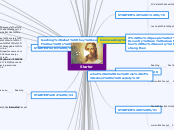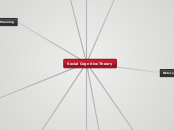"By far the best restaurant in my town. Also a good price."
located downtown. where everyone goes
what is the role of school in society?
if the people of a country are educated then the country will strengthen
brainwashing?
teaching what they want us to know?
Starter
STARTER 19 7/19
STARTER 17 7/12
prolonged summer break is dividing students and costing educators.
"Summer is the most unequal time in America," says Matthew Boulay, founder and CEO of the National Summer Learning Association. "We pour enormous amounts of resources in children learning but much of that investment stops in the summer months."
Students lose the knowledge equivalent of one month of instruction per year because of summer learning loss, and teachers are forced re-teach the previous year's curriculum for weeks to compensate, studies show. That lost time, and lost knowledge, adds up, especially for low-income students.
Well-off students often retain more over the summer months than their poorer peers, creating a gap that widens over time. By ninth grade, accumulated summer reading losses accounted for two-thirds of the reading achievement gap between low-income children and middle-income children, one John Hopkins study found.
Jews
why has their education system survived even with all they have been through
SIMPLE
every member of the community was considered a learner and a teacher
commitment to family and to god
read daily pages of god
academic and the renewal of covenants
keeping record of experiences
Spartans
physical exercise and in good physical shape is directly correlated with your intelligence
high competition
those who are out of physical shape are less intelligent
school (based off of book Spark) who focused on physical fitness. took a test and every _____minutes they would have a 15 minutes of physical activity. top test scores within 2 years
STARTER 15 7/5
Avoiding grading bias is one way teachers can be seen as "fair" in student evaluations, a new study finds
about students retaliating against them with harsh evaluations as long as they use practices considered to be "fair" in the classroom,
Other recommendations included grading consistently, incorporating course policies in the syllabus, including grade-appeal procedures in course policies and, if possible, having students submit grading appeals by their student ID numbers rather than by their names to avoid bias.
Jefferson
Founder of University of Virginia
Jefferson believed that libraries and books were so integral to individual and institutional education that he designed the university around its library.
Jefferson proposed a system of public education to be tax-funded for 3 years for "all the free children, male and female," which was an unusual perspective for the time period. They were allowed to attend longer if their parents, friends, or family could pay for it independently.
Jefferson was an advocate of public education.
In a 1786 letter to George Wythe, he remarked that "the most important bill in our whole code, is that for the diffusion of knowledge among the people."[21] He believed that "no other sure foundation can be devised for the preservation of freedom and happiness" and that failing to provide public education would "leave the people in ignorance."
STARTER 13 6/28
James
William James, in this selection is outlining a method of discerning whether something is worthy of our effort. This pragmatic method will help us determine if a particular line of reasoning is worthy of our time and effort by applying the test of practical consequence
pragmatist.
what is necessary to be discussed and what is ineffective?
3. Must a subject be practical to be taught in school?
depends.
i say, in general, yes. BUT sometimes there are subjects, questions, ideas, etc. that are merely intriguing to the mind and not necessarily a "practical" subject. However, these things don't necessarily need to be "taught" but are free to be discussed. As someone who appreciates the freedoms we have as children of god and citizens of a free country "must" is a word i would use lightly. but i do believe that teachers should be finding core subjects and topics that are practical and effective in their meaning and purpose.
Dewey
Dewey’s environment was meant to parallel real life where a student could learn by approximating problems and events that occurred in daily living. Practicum experiences for teacher education students where you work in an actual classroom with actual students can be a good example of this type of learning.
theory of education is built upon learning through experience. When one talks about “hands-on” or “child centered” education they are often referring to principles of progressive education.
2. What are you doing when you are learning things?
applying it to me personally, making connections, a mental hands-on
information sticks when it has affected me, shaped me in some way. there is great power in application learning but the student must also be AWAKE to let information effect them
1. drop out rates/graduation stats
80% graduate nationwide
school to prison pipeline: in the United States, the school-to-prison pipeline (SPP), also known as the school-to-prison link or the schoolhouse-to-jailhouse track, is the disproportionate tendency of minors and young adults from disadvantaged backgrounds to become incarcerated, because of increasingly harsh school and municipal policies.
spend more money incarcerating students rather than educating them--a disturbing thought
STARTER 11 6/21
thoughts
2. meaningful vs meaningless things
how can something "meaningless" be defined?
something without meaning for one person could be meaningful to another person
definition is defined personally?
things "meaningless" can be defined as something that prevents/stops/keeps are progression. so although it can be personally defined, there are many things that are not going to continue the growth of ourselves/our progression. once we habitually do meaningless things, we suddenly don't even have time to do things that are meaningful & we no longer progress.
what's wrong with meaningless things
takes time away from doing things that are meaningful
1. 60% of daily life is thoughtless routine
in a sense, i believe this is trained into us. education has a massively huge role in each of our lives & the education that the majority of us has received is mediocre at best. i feel that i was almost taught to be a minimalist. to only to what was required (which in the grand scheme of things mostly always felt like unhelpful busy work)
change of hymns
committee to discuss the hymns and their popularity. which ones are loved which are not? which are doctrinally correct or not?
are we moving forward? progressing? improving our music so that we can continue to learn and depend on the info we learn from them?
Are we going to lose pieces of our history or culture as we remove and change songs
come thou fount- removed because it wasn't popular until mark wahlberg performed an arrangement
STARTER 9 6/12
variances in schools state to state
if a student moves from one state to another, there is a difference in where each school is at, how advanced their students are etc. etc
when i moved from florida to utah there was a clear difference in where the students were at in their academics and education.
the difference is the funding that is put into the schools. florida's funding is significantly higher than utah's. therefore, more work, time, money, and energy is put in--providing the students with a higher education.
Freire
2. A typical feature of Freire-type education is that people bring their own knowledge and experience into the process. Training is typically undertaken in small groups with lively interaction and can embrace not only the written word but art, music and other forms of expression.
As a student, i have noticed that we typically learn when our opinion/what we have to say have initially been accepted. You naturally feel more confident as a learner if you feel competent in your current state.
1.Social reconstructionism is an educational theory that ascribes transformational power to the role of education. Social reconstructionists believe society can be altered through the effective use of education.
What are we without what we know? If you come from an LDS standpoint, we know that we have come to earth to LEARN and to GROW. That is one of the most basic pieces of doctrine that we teach as missionaries. If we chose to come to a place to learn, to be educated, then you can surely assume that societies are built by the education of it's people. Education comes in so many forms and fashions. Book smarts, intellectualism, philosophical conversations, proficiency in speech, etc. etc. are not the only forms of education. There are countless examples of those who would be deemed educated, even if it is not by the general populace's standards.
an experience that is beneficial, regardless of how it is taught or performed, is school. Even if a student doesn't even give a portion of their efforts, it is a learning experience nonetheless because it is an experience.
STARTER 7 6/5
3. recess
Is recess a positive or a negative on young students?
should we make it more of a priority?
what about schools that don't have recess?
many positive effects of recess i.e. physical, emotional, social, cognitive, etc
The American Academy of Pediatrics (AAP) recommends that children participate in 60 minutes of “moderate to vigorous activity per day,” and suggested that recess be part of that. “Recess is a necessary break in the day for optimizing a child’s social, emotional, physical, and cognitive development,”
http://time.com/4982061/recess-benefits-research-debate/
I personally feel like recess is a necessary part of a student's day. However, i am intrigued if interruptions frustrate the flow of a student's work ethic. I grew up in the state of florida before the law was passed that 20 min of recess is required. I sat through many many years of frequent standardized tests and the only physical activity we had was PE every other day (i assume PE is a common activity nationwide). My siblings, on the other hand, have been raised in Utah. Comparably speaking, i have done better in school in the long run than they have. correlation with recess? not necessarily. but something to be said about prioritization of education.
philosophy slides
2. can these philosophies really be defined?
I am a realist
yet when i read the realist definition--it seems too definitive.
obviously there must be a basic definition and then it will mold to the person.
realism=observation. what you know based on what you have sensed and experienced.
i feel like i have and desire a hint of idealism in my personal philosophy because there is a beauty to striving for something greater, yet have realistic expectations. i feel like my mission and its missionary culture was filled with too much ideal and not enough reality (especially for a european mission where you're just going to be disappointed. if you ever said that: they deemed you faithless, which i heavily disagree with...just saying)
1. Epistemology
"How do we know what we know?
On what authority do we base our claims to truth?
Is truth permanent or changing?"
Without the gospel, i feel like this topic would make me unstable. But, even within the gospel/church, we find truths that have changed over the years. Does that make them truths, then?
woiuld
I feel like we must go the divine route on this one because of how often "new" discoveries or ideas come out. Like, how for the longest time people thought that smoking was good for them. When, in reality, it is horrible for you. This happens all the time in society and science. This makes me think that we don't necessarily need to be "praying" about things all the time but avoid ignorance and keep the source of all truth (the savior) always in the back of our head.
How do you grade fairly?
mathematically
psychologically
Assessment
continuum variables
the world is starting to go more this direction
all or nothing (discreet)variables
gender
math
multiple choice
QUANTITY?
homework
attendance
Participation
STARTER 4 5/24
Current Event
The Power of a Relationship
3. Students who develop a strong bond with a teacher tend to score higher on tests.
Rousseau
2. Education is vital and is the only power we have on earth over ourselves.
1. "We are born weak, we need strength; helpless, we need aid; foolish, we need reason. All that we lack at birth, all that we need when we come to man’s estate, is the gift of education"
STARTER 3 5/22
READING
Jane Addams
3. "Four fifths of the children brought into the Juvenile Court in Chicago are the children of foreigners."
2. We are impatient with the schools which lay all stress on reading and writing, suspecting them to rest upon the assumption that the ordinary experience of life is worth little, and that all knowledge and interest must be brought to the children through the medium of books."
cannot connect with the world
Children lacking an impotant portion of education that can only be experienced
1. "We throw more money at our schools than just about any other country, and what do we get? For our K-12 school system, an honorary membership in the Third World."
http://www.foxnews.com/opinion/2017/12/25/education-in-2018-three-major-challenges-facing-americas-schools-and-students.html
we rank 38th in the world with level of 15 year olds
teachers get paid so little
how is that even possible when our school systems are so lacking
Strikes in Education
Tenet
Tenet #3? Structure?
Tenet #2: Act, rather than be acted upon--self-reliant
Tenet #1: It is about the learner. Student centered ideas and discussions
If I really believe this, why am I striking?
what is it that you are really asking for?
what do you believe?
Strike in Arizona
Our children go to school to learn to be workers
John Dewey: "What avail is it to win prescribed amounts of info about geography and history, to win the ability to read and write, if in the process the individual loses his own soul?"
Why are our schools not places of joy?
Public Display of Scoring
makes them feel insignificant, slow, dumb, insecure
Disagree
embarrasses student
Philosophy
metaphysics?
what does it mean and what is my opinion?
TRUTH
anyone can learn anything
you are never too old to learn
learning requires work
We are all children of god
The best way to learn is to teach
Learning is universal
Subject vs student
want the subject to really be helping my students walk out changed
my focus is more based on the student than the subject
lack subject in the first place
Volunteerism
IDEAL vs REAL
Can we achieve this?
Obviously Christ is the goal
Christ is the ideal
the parable
Am I giving you something that will live on?
Testimony?
The scriptures
Does it matter what the teacher gives me?
trained when you are young...can that be helped?
WOLK
given sticks rather than trees as a child but how can
I differentiate, as a child, trees from sticks? can that
really be expected?
Tenet #2- act rather than be acted upon
have to breath the breath of life into it ourselves
Dormant seed?
Sticks vs Tree
Does everyone know about the tree?
acting for yourself rather than being acted upon
Tenet #2
STARTER 18 7/17
STARTER 16 7/10
A new study suggests that the education system’s focus on the test scores of English-language learners may be obscuring the progress schools have made.
Researchers argued that comparing years of test scores of students in the process of learning English would reveal little change, since their limited language skills would always affect their academic performance.
On the other hand, once such students pass through programs and become proficient, they would no longer be classified as English learners. So if schools improved their ability to teach students English, those results would not show up in test scores because the successful students would be reclassified and their scores would not be included.
horace mann
first great American advocate of public education, who believed that, in a democratic society, education should be free and universal, nonsectarian, democratic in method, and reliant on well-trained professional teachers.
educated himself in the franlkin town library (poor circumstances, bad teachers)
message centred on six fundamental propositions: (1) that a republic cannot long remain ignorant and free, hence the necessity of universal popular education; (2) that such education must be paid for, controlled, and sustained by an interested public; (3) that such education is best provided in schools embracing children of all religious, social, and ethnic backgrounds; (4) that such education, while profoundly moral in character, must be free of sectarian religious influence; (5) that such education must be permeated throughout by the spirit, methods, and discipline of a free society, which preclude harsh pedagogy in the classroom; and (6) that such education can be provided only by well-trained, professional teachers.
STARTER 14 7/3
class requirements that don't teach students to live
build a course that teaches students to actually successfully survive on their own
we teach students math all the way to precalc and calc and chemistry/physics but many young people don't know how banks work, taxes are filed, mortgages, paying bills, etc...
i am not saying that we need to eradicate non essential courses but involve practicality into education
Greene
What knowledge and skills are worthwhile learning? "Those things which release more and more people for reflective encounters with a range of works of art, works that have the potential to awaken, to move persons to see, to hear, and to feel often in unexpected ways.
Perceptive encounters with works of art can bring human beings in touch with themselves. We must awaken in order to continue our efforts to build a just, compassionate, and meaningful democracy"
What are the goals of education? To help students to realize their deep connection to and responsibility for not only their own individual experience but also for other human beings who share this world.
... being able to express oneself in a number of different "languages" -- including imagery, music, dance (Greene, p. 57)
Students should explore the meaning of the text, share insights with others reevaluate their thinking in light of other ideas.
Students need to come to understand that the reason for learning is to nurture their intellectual talents for the construction of our society into a more democratic just and caring place to live. Citizens must be well informed and have the educational abilities and sensitivities needed to critically examine the world in which we live.
Freedom does not mean absence of responsibility. One can only be free when one accepts responsibility for his/her experience of the world.
kierkegaard
Kierkegaard takes how one lives one’s life to be the prime criterion of being in the truth.
father of existentialism
Kierkegaard's peculiar authorship and literary style employed irony, satire, parody, humor, polemic and a dialectical method of "indirect communication" in order to deepen the reader’s passionate subjective engagement with ultimate existential issues.
Kierkegaard's peculiar authorship and literary style employed irony, satire, parody, humour, polemic and a dialectical method of "indirect communication" in order to deepen the reader’s passionate subjective engagement with ultimate existential issues.
STARTER 12 6/26
3. free and open immigration
while her ideals and desires are something to think about & her story inspiring, the effects of free and open immigration is significant and has both positive and negative results. naturally, the united states has continued to change as the political climate of the world does.
2. Mary Antin
an American author and immigration rights activist
Mary Antin is best known for her 1912 book The Promised Land, describing her experience and that of her family in settling in America and attending American schools.
Although Antin’s family was poor, in the new country she was free to attend Boston’s public schools, including the demanding Boston Girls’ Latin School. Antin later wrote about the great opportunity the school offered to her; it gave her both a dedication to learning and an intense sense of patriotism for her adopted nation.
american dream? Mary Antin kind of embraces the entire ideal of the american dream. coming from a place of disadvantage to the states where she found herself through education and was able to open up a world of new ideas and learning.
1. reading to kids/the lack thereof
i learned that children mentally develop better when their parents have read to them (or involved reading) in their lives from the time they were born
their speech improves, vocabulary, cognition, problem solving, etc.etc.
my mother read to me all the way back before i can even remember. reading was a daily part of my life but also something i looked forward to. i remember chapter books that my mom started to read to me when i was 4/5 years old. from then on, i have loved to read and have continued to do so my whole life. my reading skills were very advanced when i was in elementary school & i have never struggled. I say that to compare with my younger siblings. they have not had the same experience as me. reading has not been a huge priority for them and their reading skills & academia has struggled more than mine. i don't believe that is because i am smarter but because i had a developmental advantage where my mother read to me and to them not nearly as much (oldest vs youngest children)
STARTER 10 6/14
Jesus christ
he is not 100% any specific ism. you can find chunks of each in his mannerisms, choices, sayings, etc.etc.
he can teach someone no matter where their ism lies. christ lives on a higher level
our students are not perfect. we are not perfect. so we need to learn how to teach and relate to them all.
why am i a realist?
3. realism: we live in the big picture. we understand our current circumstances
pragmatists: practical, solving problems
idealist: shooting for the best
class discussion feels like one opinion against another.
2. to me, this philosophy is the healthiest. We live in a world that is very real and will not be perfect until jesus comes. idealism is perfection. we will never reach that in this life. Students will not learn perfectly. you will not reach every student. you can reach for an ideal, a better goal, a better outlook, but everyone (i think) should realize that perfection is unattainable and doing your best.
is an idealist striving for perfection? that could be a debatable topic. maybe an idealist has a reachable goal?
1. new york thinking about not giving students hw
Jane Hsu, principal of P.S. 116, cites research that suggests students of this age group would benefit more from non-homework activities. She says the school spent a year looking over various studies and concluded that there are better methods for fostering academic and personal success than through take-home assignments. Some of the school's parents are countering with accusations that eliminating homework will stunt the development of healthy study habits. There's also the worry that these formative years ought not to be wasted while children's memories are still strong.
STARTER 8 6/7
3. school choice
cause of imbalance?
I am not particularly opinionated about school choice but it seems like something that would cause more problems down the road rather than improve. if students could always pick, then the "nicer" schools will become packed, receive more funding, have an advantage to other schools...and older, potentially less prestigious schools would crumble. to make this work, you would have to make all the schools equal, which will never happen (realist side of me coming out).
the game of life
2. the character i played (aidan) was a child of a wealthy politician. money was from trust fund.
i know that is not who "aidan" always is. bro wilson basically made my story for me to spice things up. i originally just sat and watched everyone play their different roles, but eventually i was nudged by another character (judge) to do something. bro wilson, made sure that a couple people around overheard that i came from a political/wealthy background. almost immediately, other students came up to me desiring to know my story, sell me things, etc etc. even in a "game of life" scenario, we do what society has trained us to do. our knee-jerk reaction tends to be fascinated by wealthy people and want to know them, take advantage, suck up, etc. etc.
1. each person took on their role and actually took it decently seriously which impressed me. fascinating how so naturally, with very little guidance, students did something. even though bro wilson told us we could do whatever we wanted.
i think "giving up" is not a knee-jerk response for most people. i think we have been programmed with a need and desire to live and live as well as we think we can. obviously, people will at times think that their best is low or maybe unreachable, too idealistic, or unreachable, etc. etc.
i think of pestalozzi who believed it vital for everyone to be educated. education isn't necessarily sitting @ a desk and learning, its experiencing and getting to know yourself as well. i wonder if everyone recognized that and tried to see what was inside them, their potential would automatically exponentially grow. school is a practical and general way we can make that happen which is, what i think, pestalozzi was talking about. it's all about building confidence in ourselves. but someting has to feed that fire.
STARTER 6 5/31
3. team teacher
are they effective?
one person love while the other hates
The Poor in Education
2. affirmative action
1. how do you measure "poor"?
parents never graduated from college
parental support
income
STARTER 5 5/28
current event
3. gifted program
does it help more "advanced" kids? or does it really just make other kids feel dumb?
if you treated everyone like they were "gifted" would they reach that expectation?
studies have shown that if you treat a child like they are special they will naturally perform better. the opposite is also true.
Reading
Pestalozzi
2. Concerned about conditions of the poor.
through education, their lives could be improved
stop the cycle of poverty producing more poverty
1. everyone has a right to education & society's
duty to put that into practice
education can bring happiness to mankind
STARTER 1 5/15
AGE
School system
k-12 (5-18)
is that good? effective?
we can't control what all students do.
there needs to be a time when we let go
testing to get into schools?
south korea technique
Middle School vs Junior High
Track system
Podding
junior high: can be 7-9, 7-8, etc. less transitional
Where would you rather teach?
middle school: transitional, 6-8, help students transition
from 1 teacher a day to 6/7
Shinjin hometown
Cheonan
Yoogane Chicken Galbi
Assigned VS Volunteer
if trained from a young age that learning is GOOD, maybe we would volunteer?
volunteering=superior
exercising agency, the way God intended
Christ volunteered
realistically: we've been taught (in a more
subconscious form) that learning is a chore
worksheets, assignments--do then free
IDEAL: we WANT to learn
Rachel/Groups (Gabby)
In what ways should it be?
more acceptance
less complaining about honor code/dress code
How different is BYU-Idaho?
an investment. as students are educated, more tithing goes into the school
get as many people educated as possible
Time to Ditch the SAT?
Subtopic
standardized test=unnecessary
some colleges are doing away with it.
high stakes test--curriculum is created around it
thinkers vs standard test takers
teaching students to regurgitate evidence and not think for themselves
Main topic
Universal Design For Learning: UDL
Chairs...the most universal application
Me: Course Essential Questions
what motivates me?
people
love for them
How do I view those I teach?
people who I once was
what is my work as learner and teacher?
to understand
to be patient
babysit
upon what foundation are US public schools built
education for all
how do I learn?
reading
discussing
through teaching
what is worth teaching
anything that is desired to know
Who am I?
a student
"I feel..."
a questioner
a child of god
Starter 2 5/17/2018
2. What is philosophy?
are any of my choices actually free?
do humans know how to measure everything going on in our bodies?
if i'm not truly free to make my own decisions how can I be held accountable for them
1. Standardized testing
In korea: live for standardized testing
thinkers vs standardized test takers
unnecessary
Been told to do things a certain way whole life and then get to college and they say think outside the box...& we have no idea how to do that
no college prep
Shinjin hated his high school
thinks things should be controlled by regional party instead of the entire gov









